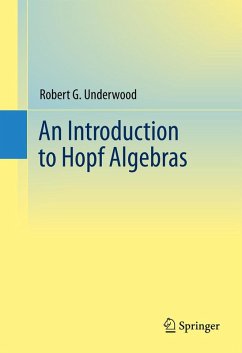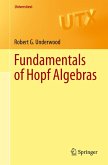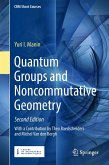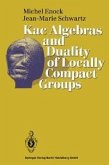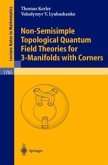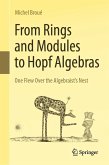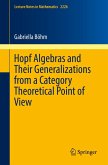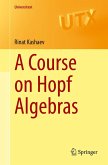The study of Hopf algebras spans many fields in mathematics including topology, algebraic geometry, algebraic number theory, Galois module theory, cohomology of groups, and formal groups and has wide-ranging connections to fields from theoretical physics to computer science. This text is unique in making this engaging subject accessible to advanced graduate and beginning graduate students and focuses on applications of Hopf algebras to algebraic number theory and Galois module theory, providing a smooth transition from modern algebra to Hopf algebras.
After providing an introduction to the spectrum of a ring and the Zariski topology, the text treats presheaves, sheaves, and representable group functors. In this way the student transitions smoothly from basic algebraic geometry to Hopf algebras. The importance of Hopf orders is underscored with applications to algebraic number theory, Galois module theory and the theory of formal groups. By the end of the book, readers will be familiar with established results in the field and ready to pose research questions of their own.
An exercise set is included in each of twelve chapters with questions ranging in difficulty. Open problems and research questions are presented in the last chapter. Prerequisites include an understanding of the material on groups, rings, and fields normally covered in a basic course in modern algebra.
After providing an introduction to the spectrum of a ring and the Zariski topology, the text treats presheaves, sheaves, and representable group functors. In this way the student transitions smoothly from basic algebraic geometry to Hopf algebras. The importance of Hopf orders is underscored with applications to algebraic number theory, Galois module theory and the theory of formal groups. By the end of the book, readers will be familiar with established results in the field and ready to pose research questions of their own.
An exercise set is included in each of twelve chapters with questions ranging in difficulty. Open problems and research questions are presented in the last chapter. Prerequisites include an understanding of the material on groups, rings, and fields normally covered in a basic course in modern algebra.
Dieser Download kann aus rechtlichen Gründen nur mit Rechnungsadresse in A, B, BG, CY, CZ, D, DK, EW, E, FIN, F, GR, HR, H, IRL, I, LT, L, LR, M, NL, PL, P, R, S, SLO, SK ausgeliefert werden.
From the reviews:
"The goal of this book is to introduce readers to the use of Hopf algebras in algebraic number theory and Galois module theory, in particular developing the theory of Hopf orders. ... The book concludes with a chapter of open problems, making this text very suitable for a beginning graduate student to work towards the research frontier in this area. ... This work very nicely complements the other texts on Hopf algebras and is a welcome addition to the literature." -- Jan E. Grabowski, Mathematical Reviews, July, 2013
"In this book, Underwood chooses to introduce Hopf algebras in a manner most natural to a reader whose knowledge of algebra does not extend much beyond a first year graduate course." -- Alan Koch, zbMath
"The last three chapters of the book in point of fact deal with particularly attractive "arithmetical" themes such as class groups of Hopf orders. Underwood ends the book with a discussion of "Open questions and research problems." Clearly this is very sexy stuff, and Underwood's book will make a real impact cutting across a number of putative boundaries..." -- Michael Berg, MAA Reviews
"The goal of this book is to introduce readers to the use of Hopf algebras in algebraic number theory and Galois module theory, in particular developing the theory of Hopf orders. ... The book concludes with a chapter of open problems, making this text very suitable for a beginning graduate student to work towards the research frontier in this area. ... This work very nicely complements the other texts on Hopf algebras and is a welcome addition to the literature." -- Jan E. Grabowski, Mathematical Reviews, July, 2013
"In this book, Underwood chooses to introduce Hopf algebras in a manner most natural to a reader whose knowledge of algebra does not extend much beyond a first year graduate course." -- Alan Koch, zbMath
"The last three chapters of the book in point of fact deal with particularly attractive "arithmetical" themes such as class groups of Hopf orders. Underwood ends the book with a discussion of "Open questions and research problems." Clearly this is very sexy stuff, and Underwood's book will make a real impact cutting across a number of putative boundaries..." -- Michael Berg, MAA Reviews
In this book, Underwood chooses to introduce Hopf algebras in a manner most natural to a reader whose knowledge of algebra does not extend much beyond a first year graduate course. - Alan Koch, Zentralblatt Math.

